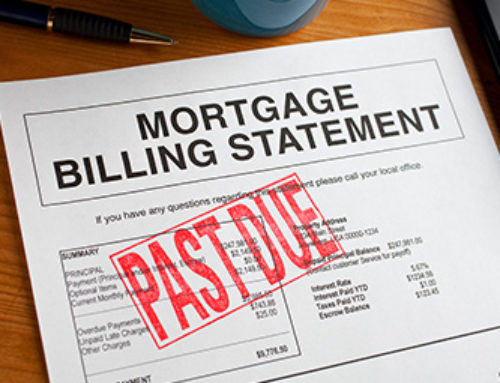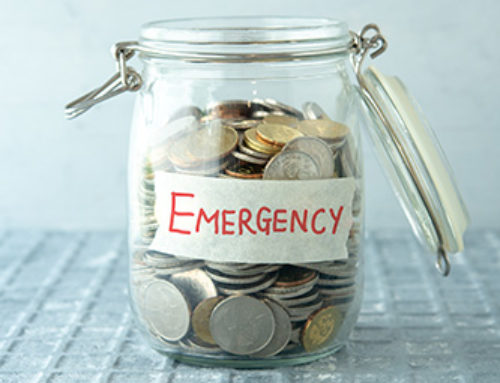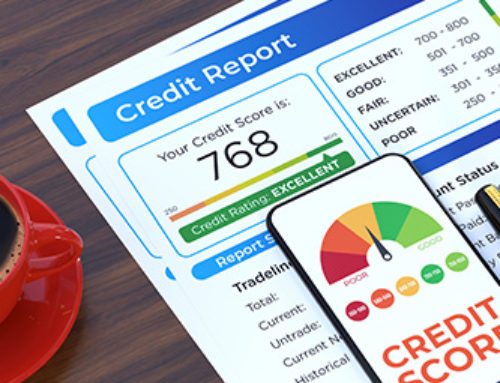If your finances are getting out of hand, there are several things you can do to help restore stability. Paying off debt is an essential part of getting your financial life in order. Debt can cripple your finances and create a feeling of burden on your shoulders that never seems to go away. Debt doesn’t just keep you from saving for your future; it also keeps you from enjoying the life you deserve.
Think about what you could accomplish if you didn’t have to hand over your paycheck in debt settlement every month. You would have the financial freedom to pay yourself first and live your life the way you want. This could include not living off paycheck to paycheck, saving for retirement, funding a family vacation, working at a job you love, or just not worrying about the amount of money in your bank account.
Paying off debt can seem daunting, but it can be done with the right strategy. This article will teach you how to pay off your credit card debt, make better financial decisions, and stay focused.
Credit Card Debt Payment Strategies
There are several ways to manage your credit card debt. Depending on your credit situation and your budget, some may be better than others. Here’s a quick rundown of your options that can help you decide which way to go.
Debt Consolidation Loan
A debt consolidation loan is a personal loan that you use to pay off credit card debt. Unlike credit cards, personal loans are installment loans with a fixed term and a fixed monthly payment amount. Debt consolidation loans can help you get a lower interest rate and streamline your payment process by replacing multiple monthly payments with just one.
Personal loans have lower interest rates than credit cards on average. However, what determines the rate is your credit score and other factors, so there is no guarantee that you will get a lower rate than what you are currently paying. You may face high interest rates or have difficulty qualifying for a personal loan if your credit rating is fair or poor. Many lenders, however, allow you to pre-qualify before you apply. This process only requires a soft credit check which does not affect your credit score. You will also get to compare loan offers with your current situation.
When considering a personal loan for debt settlement, make sure the new monthly payment is within your budget. It may be difficult to meet up if it is too high or over the limit, and late payment may affect your credit score. You must ensure not to add up the balances on these cards; else, you could find yourself in a worse condition than when you got the loan.
Balance Transfer Credit Card
If you have a good balance, you can also make use of a balance transfer credit card. These cards typically have a low or 0% APR over a period. You could get some promotions offering an interest-free period of up to a year or more. During the introductory phase, you will not pay any interest on the balance you transfer from another credit card, although you may pay a transfer fee of 3% or 5% of the transfer amount.
If you can pay off the entire balance before the end of the introductory period, you stand the chance of not paying interest charges. Even if you cannot pay it off in full on time, keep paying as much as you can for the balance each month, and you could still save hundreds of dollars. Consolidating multiple balances into a balance transfer can make your monthly payment easier.
However, you need to understand the limitations of balance transfers. Often, the promotional APR only applies to the amount you transfer, and a higher interest rate may apply to any new charges you make with that card. Some promotional offers include transfers and purchases, so read the terms carefully.
Also, there is no guarantee that the new card will give you enough credit to cover the amount you wish to pay off. You may hurt your credit score, albeit temporarily, when you max out the balance transfer card until you can pay it off and reduce your credit utilization. Always remember that your credit utilization plays an important role in your credit score.
Finally, keep in mind that you risk losing the introductory rate when you are late or miss your payment. Once the introductory period is over, the interest rate on the outstanding balance can increase dramatically.
If you’re eligible for a balance transfer card and are motivated to pay off your balance as quickly as possible, the savings may be worth it.
Debt Snowball Method
If you’ve been having trouble overspending and you think getting a new loan or credit card to pay off your balance could lead to even more debt, you should consider the debt snowball method.
With this method, you make minimum monthly payments on all your cards and apply any additional payments you can make to the credit card with the lowest balance. When that card is paid off, take the amount you paid on the first card and apply it to the card with the next lowest balance. Do this with each card until they’re all fully paid off, with your payments snowballing on each new card.
The snowball approach to debt is best for people who need an early result to stay motivated. It does not matter if your lowest balance is only a few hundred dollars, the reward could help you focus on your goal.
Debt Avalanche Method
As with the debt snowball strategy, the debt avalanche method focuses on eliminating accounts one at a time. The main difference is that, with the avalanche method, you focus on paying off your balances with the highest interest rates first.
Unlike the Debt Snowball method, you may not see early wins with the Debt Avalanche method. For example, if the card with the highest APR also has a high balance, paying off your first credit card might take a long time. However, it could help you save more money by getting rid of your most expensive debt first.
Debt Management Plan
If your credit is bad, your best options may not be a debt consolidation loan or a balance transfer card. And if you cannot afford additional payments through the debt avalanche or snowball method, you may want to consider a debt management plan. A debt management plan is a payment plan that you can complete with the help of a credit counselor. A credit counselor will let your creditors know that you are using a debt management plan and usually try to negotiate lower interest rates and monthly payments.
Depending on how much you owe and your credit rating, debt management plans typically last three to five years. They can be a great alternative to debt settlement and bankruptcy, which can be effective but seriously affect your credit score. Your card issuers may choose to close your accounts, which could affect your creditworthiness, but not much compared to the credit damage that may result from your other options.
Debt management plans are also not very expensive, but you may have to make a modest down payment and ongoing monthly fees for the plan’s duration. Contact a reputable credit counselor to find out if this might be a good option for you. If debt settlement and bankruptcy are the options you have, a debt management plan can save your credit score and potentially your money.
Tips For Paying Off Credit Card Debt
As you think about your options for paying off your debt and try to find the most effective way to reach your goal, here are some tips to help you get there.
Create A Budget and Stick to It
The more you can pay off your credit card debt each month, the faster your debt will be paid off.
If you don’t have a budget yet, write down your average income and expenses for the previous months first. Rank each of your expenses to get an idea of where your money is exactly going. Then you can identify areas where you can reduce those dollars and use them to reduce debt.
If you live from paycheck to paycheck, this step can be tricky. Even if it is just a few dollars you can save, it can make a difference in the long run. Strive to have a budget and keep looking for ways to earn more or save more in the future.
Work To Reduce Your Daily Bills and Expenses
Initially, you might not know where to cut your budget. But when you look at think critically, you may be able to find a few options. Start with your recurring bills. For example, if you have multiple streaming services that you don’t use very often, consider reducing them in the meantime until you’ve paid off your debt.
You can also shop around for cheaper premiums on your auto insurance from other companies. In addition to those regular bills, check out how you spend your money each day. If you like eating out instead of making your food at home, making that small change can free up some money that you can use to pay off your credit card debt. Again, remember that you don’t need to change your lifestyle or spending habits permanently. But if you make small, temporary changes now, you might be better off financially in the future.
Find Ways to Earn Extra Cash on The Side
It is possible to make money with side hustles, even from the comfort of your home. Here are some of the things you can do to increase your cash flow:
- Devote more hours to your current job.
- Ask for a raise.
- Take a second job.
- Look for temporary or casual jobs on job boards.
- Charge money for something you are good at
- Sell some of your items that you no longer need.
There are several other ways to earn a little extra cash each month to help you pay off your debt. Take the time to think about which approach is best for your situation.
Consider Nonprofit Credit Counseling or Financial Assistance
Credit counseling agencies do more than create debt management plans. If you’re having trouble understanding your debt situation, a credit counselor can help. They can check your debt situation, help you budget, explain your options, check your credit report with you, and educate you. Some agencies provide all of this for free.
You may also want to consider seeking financial assistance if your financial situation is bad. It can take the form of rent assistance, food stamps, legal assistance, and other assistance programs from federal and state authorities and non-profit organizations.
Learn How to Use Your Credit Responsibly in The Future
Once you’ve reached your goal of paying off your credit card debt, it is important to develop good credit habits proactively to avoid falling back into the same situation.
It would help if you always strived to:
- Stick to your budget to avoid overspending.
- Pay your balance on time and in full every month.
- Avoid building a high balance.
- Use the rewards and benefits of credit cards to add more value to your daily spending.
It’s also a good idea to do regular credit checks to you know where you stand at all times. It can also help you identify any potential issues that may affect your credit score so that you can resolve them quickly. Also, be sure to review your credit reports regularly, which will give you a better understanding of what may be affecting your credit score.
Take The Bold Step
No matter how much you owe, the task of paying off your credit card debt can be daunting. But the sooner you take the first step towards your goal, the easier it will be and the faster you will reach it. Also, keep in mind that as your financial situation changes, your strategy may change. Be prepared to evaluate your plan regularly and make adjustments if necessary. Paying off credit card debt can take months, even years, but it’s well worth it.
Whether you want to calculate the cost of making payments, get a consolidation loan rate, or begin a debt settlement program, give us a call on 800 852 5049. Our consultants will help you understand your options and connect you with the right resources.



